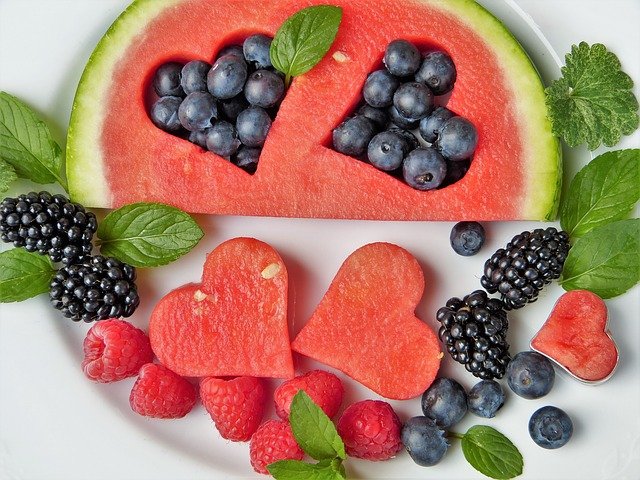Genetic Expressions
Genetic Inheritance
Let’s start with the basics and at the beginning, shall we? DNA. Our DNA is what makes up the 20,000 genes that we inherit from our ancestors. The DNA/genes contain the codes that will instruct the cells in the body to do specific tasks (i.e. become lung cells, brain cells, blood cells, etc.). The interesting thing with our genes is that each one has an on/off switch. This switch is what controls the expression, or “outward” appearance of that gene. It’s believed in the scientific community that we can change around 70% (some say over 90%) of our genetic expression! So, what does that mean for you?
EPIGENETICS
The expression of the majority of our genes, also known as epigenetics, can be altered based on our environment, our diets, our mental attitude, and our fitness. Meaning, you can activate genes that can be harmful to you or you can make those harmful genes become dormant (inactive). Now the cogwheels are probably turning in your head thinking “if I can change the expression on 70-90% of my genes, how do I activate the good genes and deactivate the bad ones?”
The environment in which you live, your thoughts, and the things you do in your life is what can either make the positive or negative changes in your genetic expression. Almost anything can change the expression but here’s a list to get you started.
What Can Change Your Epigenetics

FOOD
Food plays a powerful role in our health. Ever heard of “you are what you eat”? Your genes thrive on natural foods. And it’s just the opposite with the processed and pesticide laden junk food.
SUPPLEMENTS
It’s a known fact, the food we harvest now has far less nutritional content than it did just 100 or even 200 years ago. Supplements play an important role in getting the body the proper tools it needs to make all those magical chemical reactions and pathways work as intended.


EXERCISE
Do you get enough exercise? Do you get the right kind of exercise? How long do you sit throughout the day? Getting the proper exercise routine helps make these chemical reactions work better, activating the healthier genes, and it will also help your body absorb and obtain better utilization of the nutrients you take in, helping further those beneficial genetic expressions.
SLEEP
How much sleep do you get? Sleep allows our bodies to rest, heal, and start some of these chemical processes. It doesn’t just stop with how much, but also when. Ever notice that if you go to bed at a decent hour, you feel more rested as opposed to staying up later than you should, getting the same amount of sleep, and still feeling groggy throughout the day? Timing your sleep is just as important as to how much sleep you get.


POLLUTION & TOXINS
Air pollution, smoking, drinking alcohol, mold exposure, EMF/radiation signal toxicity, known toxins in medications and vaccines, pesticides, fluoride & chlorine in the water, etc. all can alter and change genetic expression for the worse. Depending on your genetics, this will determine how susceptible or resilient you are against these. However, exposure over time can change the genetic expression no matter how resilient your genetics are.
AGING
As we age, we slowly lose our ability to “patch” genetic mutations or errors in our genetic code via what’s called the telomeres. When we are younger, the telomeres are long and as we age and repair more damaged DNA, they shorten. This is the aging process that occurs in our bodies. There is data showing that we are able to reverse some of the aging process/damage done to the DNA via epigenetics and utilizing specific nutrients that aid in lengthening the telomeres.


PEOPLE AROUND US
One of the arguments we hear is “well, my parents were both obese and diabetic, so I’m doomed!”. A lot of people think this way! But were their parents the same? Or their parent’s parents obese and diabetic? Where did it start? Often times, instead of the genes, the parents pass down the habits (i.e. eating and exercise) that will lead to the undesirable genetic expressions. The same can be said about the people you keep closest to you. There are many different ways that people can affect your health but one example would be the “always negative” person that doesn’t seem to let anyone around them be happy.
What Can Epigenetics Cause?
Mental Health
- Anxiety
- Depression
- Addictions
- PTSD
- etc.
Sensitivities
- Chemical
- Perfumes
- Scents
- Pesticides
- Cleaning Products
- Food Sensitivities
Accelerated Aging
- Age quicker than others
- Frail skin
- Early wrinkle development
- Decreased energy levels
- Weakened digestion
- Sick often
- etc.
Disorders & Diseases
- Autoimmune Diseases
- Diabetes
- Dementia
- Alzheimer’s
- Obesity
- Majority of cancers
- etc.
Fitness
Poor muscle growth or accelerated muscle deterioration and cardiovascular problems

